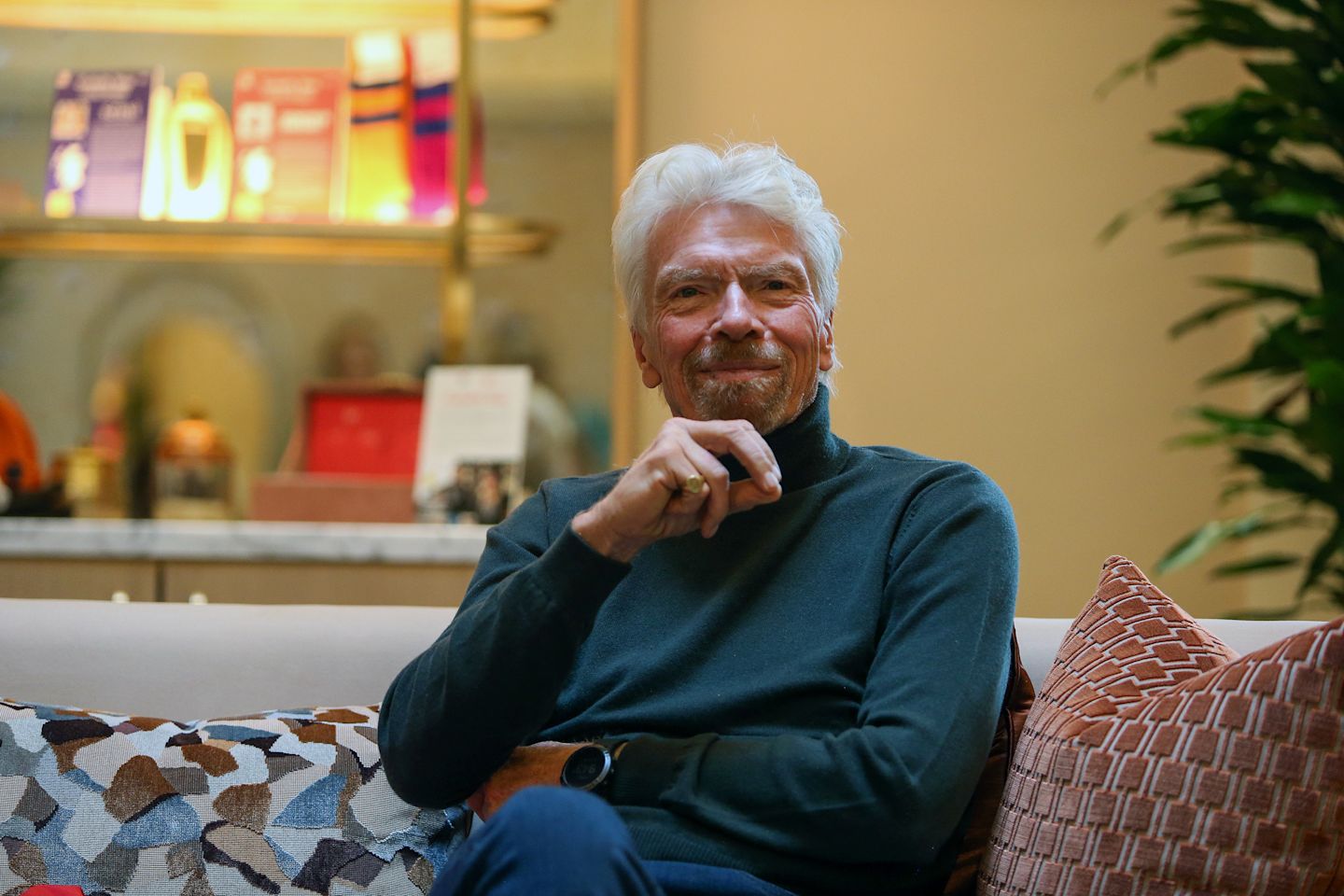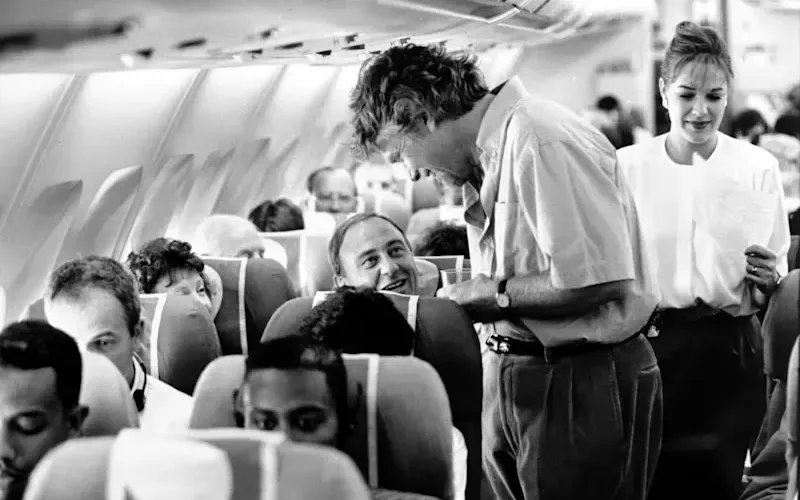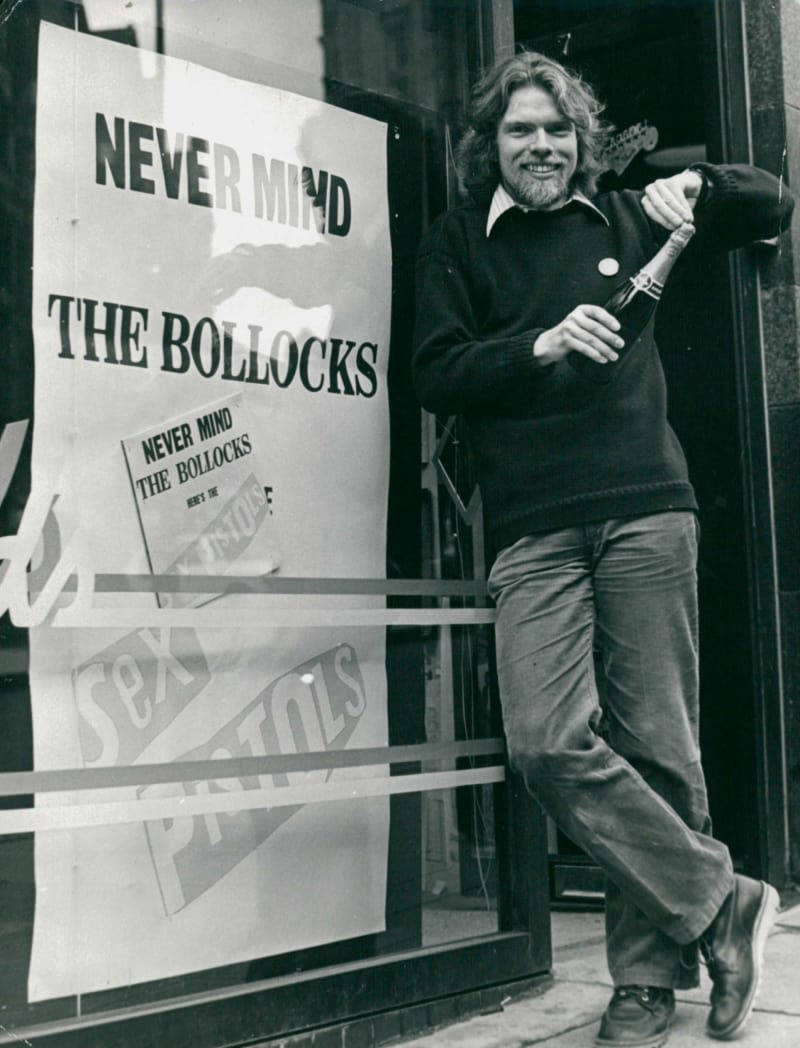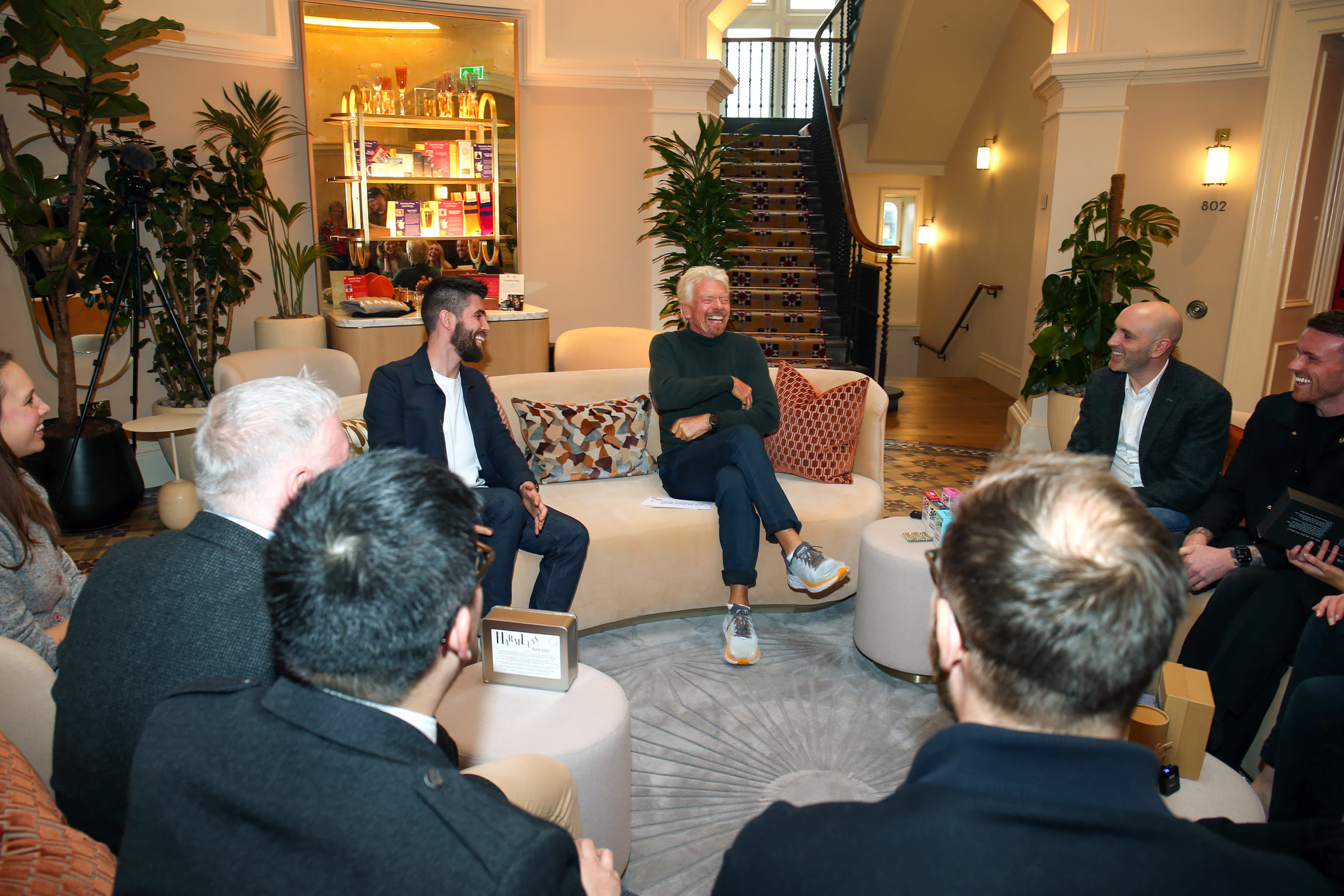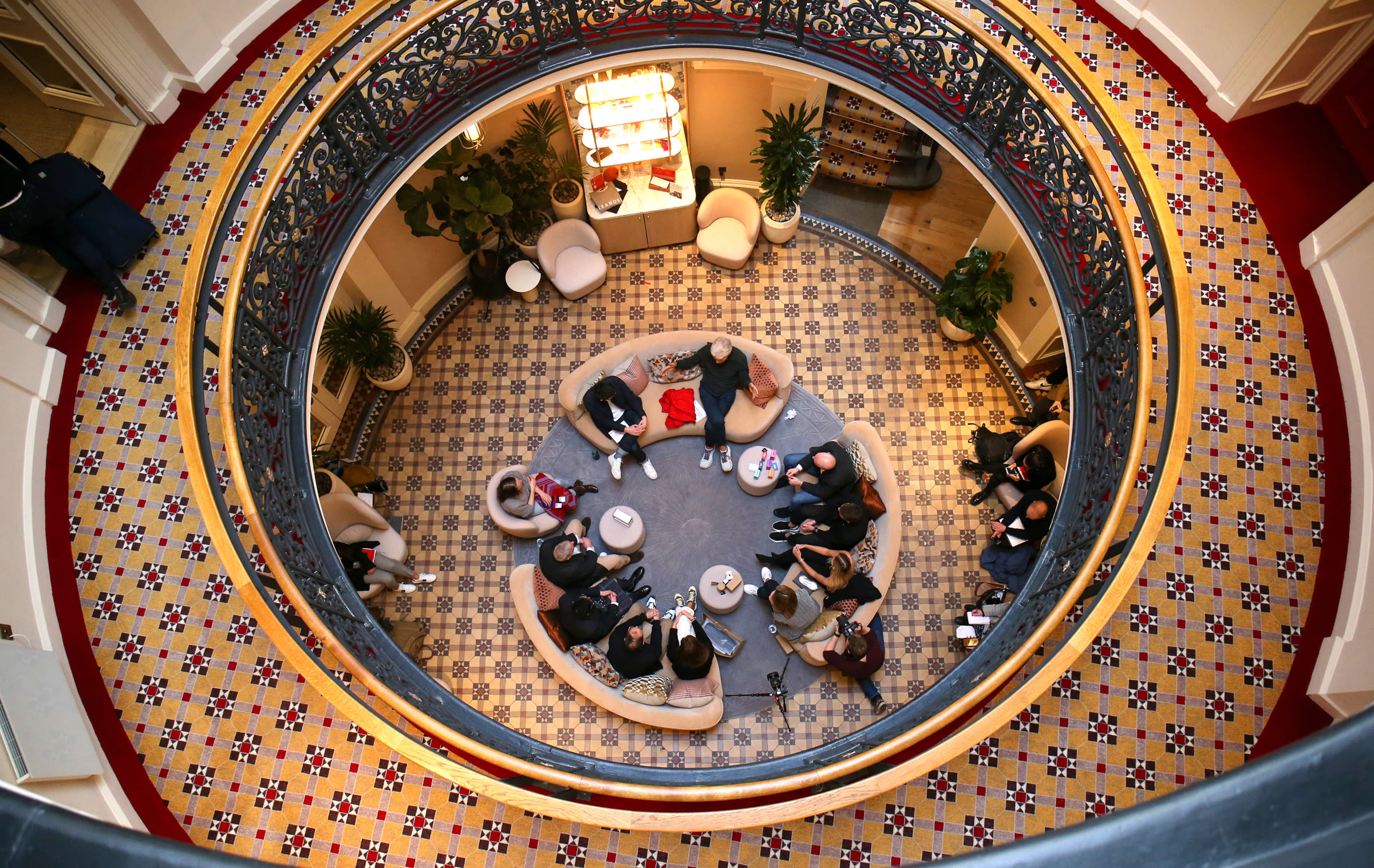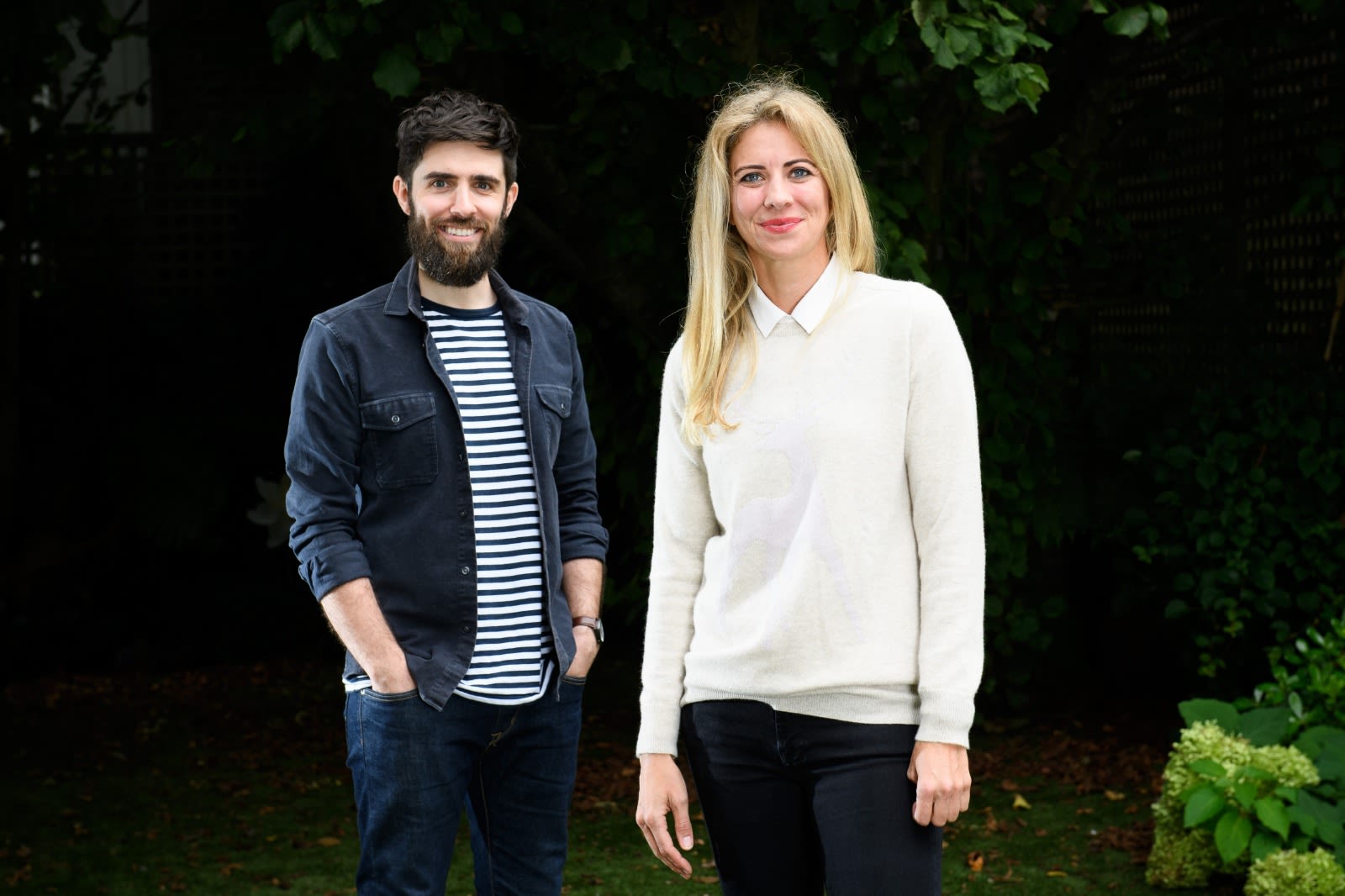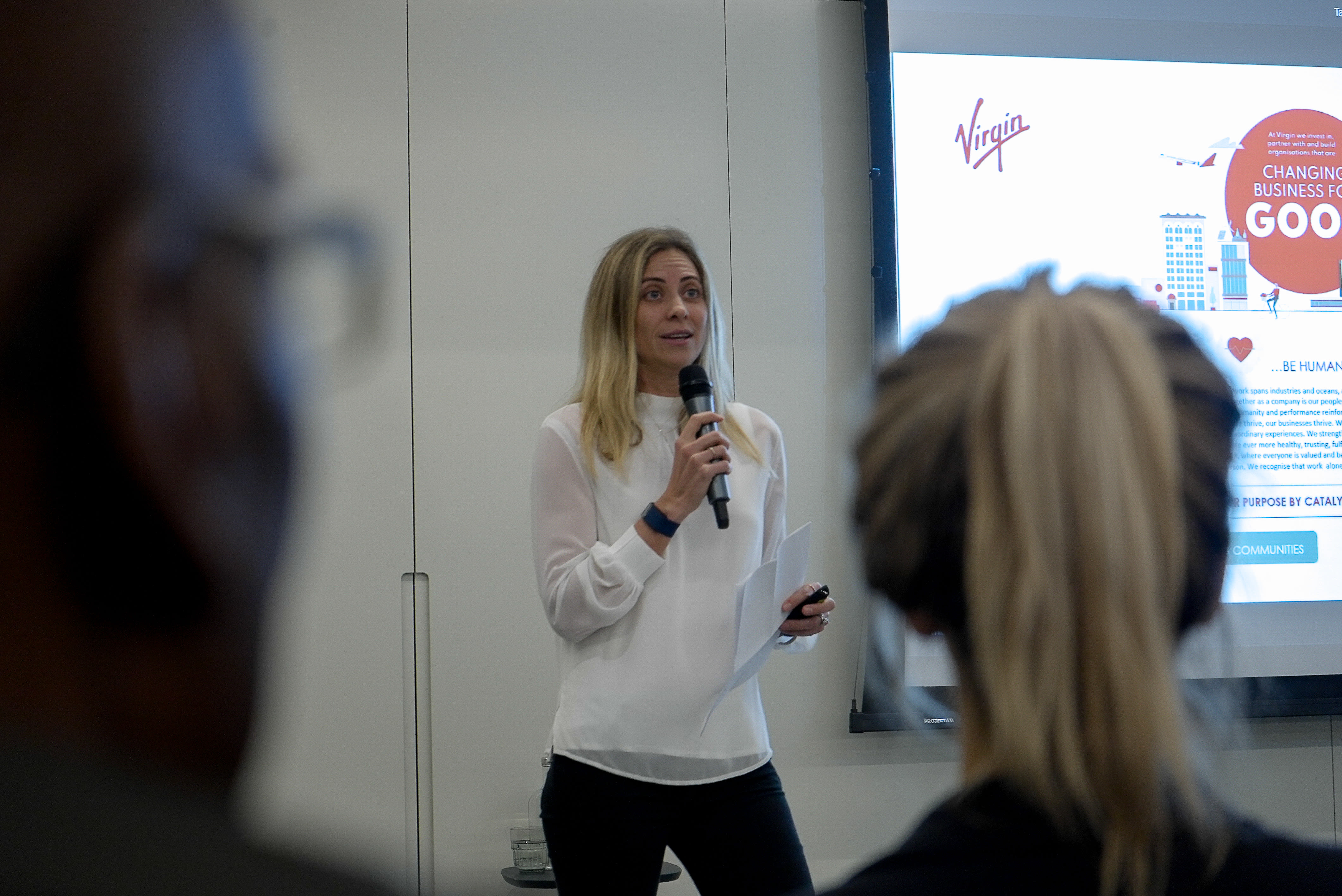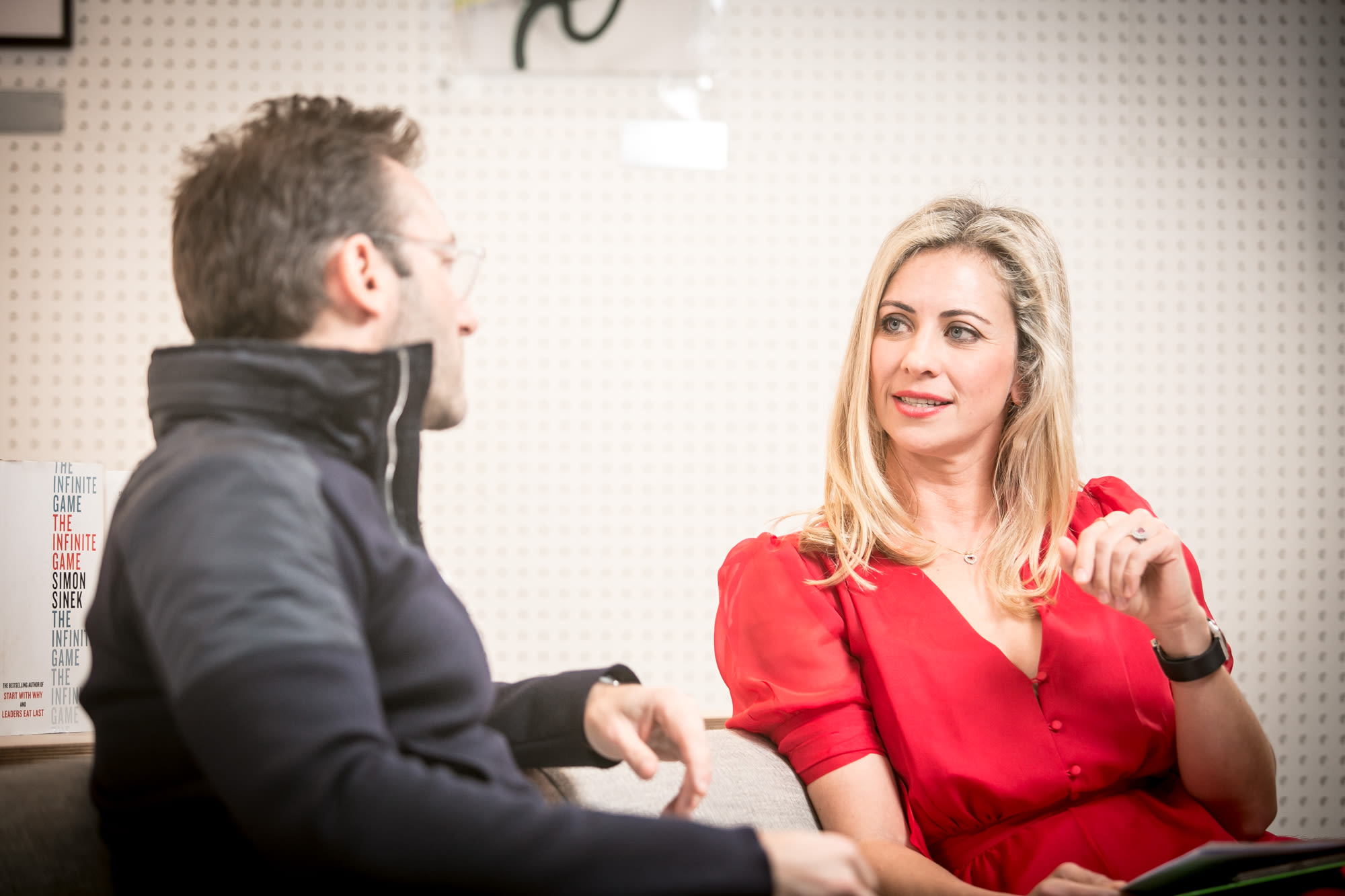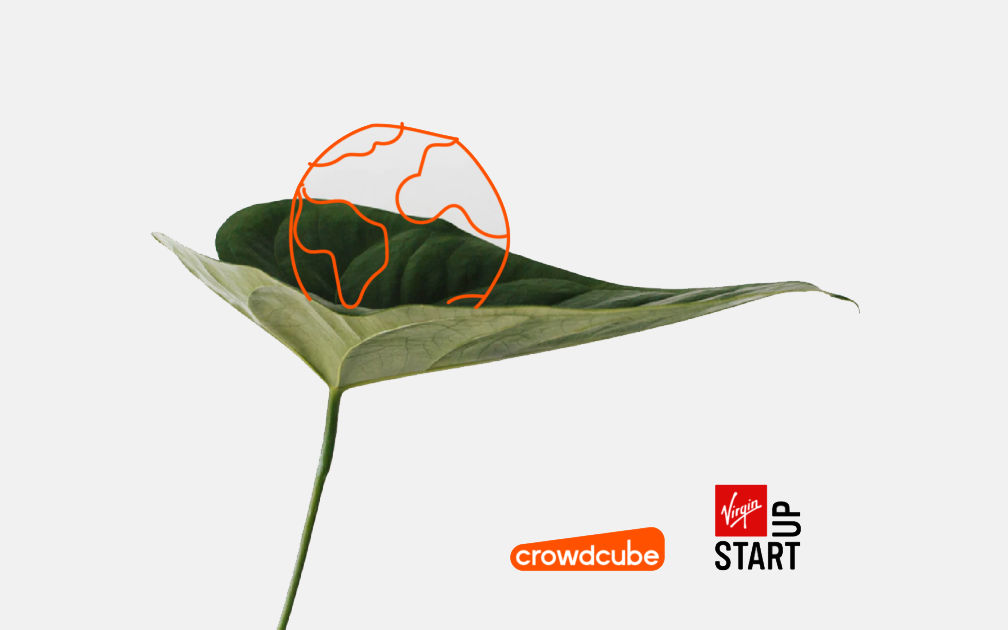The one question every entrepreneur should ask: what if…?
What’s the one question every entrepreneur should ask themselves, if they want to disrupt an industry for the better? For me, it’s: What if…?
‘What if entrepreneurs could easily get a small loan to turn their idea into reality?’
‘What if travelling by plane didn’t have to be so dull?’
‘What if gyms didn’t have to be so intimidating?’
‘What if people could travel to space without training their whole lives to become an astronaut?’
Throughout my life, I’ve asked ‘what if?’ to find obvious solutions to established problems, and then built Virgin companies that address these frustrations and gaps in the market.
Over the next few months, I’ll be looking back at the genesis of our Virgin companies, and I’ll share the ‘what if’ question that guided us through each launch. On World Entrepreneurship Day, it seemed fitting to kick off the series with the story behind Virgin StartUp, which celebrates it's 10th anniversary this year.
I started my very first business with £100 my mum gave me after selling a necklace when I was a teenager. Mum had found the necklace on the ground and handed it into the police. After months with no-one claiming it, the police gave it back to Mum, and she sold it to help pay the expenses of a youth magazine I was launching called Student. Without this cash, Student wouldn’t have existed, and Virgin Records may never have followed. This £100 sparked the whole Virgin story.
Throughout my career, I began to wonder why budding entrepreneurs couldn’t get a similar leg-up from loan providers? I asked myself: ‘What if entrepreneurs could easily get a small loan to turn their idea into reality?’ What would that mean for them, and what would it mean for the economy and the future? If university students could access loans, why couldn’t businesses and banks work with the government to do the same for the people who are building the businesses of tomorrow? I knew that Virgin was in a position to help, and so the follow up question was, ‘how?’.
I sent out letters to scores of MPs to explain my idea for start-up loans, and I sat down with David Cameron, who was Prime Minister at the time, to persuade him of the idea. In 2012, the government launched a pilot of the scheme – championed by the late Lord Young – and here at Virgin, we pulled together a diverse group of people from across the industry to work on a new not-for-profit we called Virgin StartUp, to help deliver the new scheme.
Virgin StartUp was launched to provide entrepreneurs with access to early capital, mentorship, advice, and networking opportunities. It doesn’t sound overly ground-breaking now, but start-up funding and support just wasn’t available at the time. We knew that a one-size-fits-all support model wouldn’t work, and we wanted to go beyond just funding to give business founders access to mentorship, networking, events and accelerator programmes. This would give them the best possible chance to start, fund and scale the businesses they were passionate about.
When we launched Virgin Atlantic, I turned to Sir Freddie Laker for mentorship, and he gave me invaluable insight into what went wrong with Laker Airways, and gave me plenty of other business advice. This was critical to our success, and I wanted Virgin StartUp applicants to have similar access. Virgin StartUp now has more than 600 mentors in its network, which is one of the largest business mentoring communities in the UK.
As a not-for-profit, budgets were minimal, but we had plenty of imagination and the energy around the idea reminded me of the early days of Virgin Records. We knew that by thinking big, not forgetting the details and maintaining an unrelenting focus on the founders that we support, we could find a winning formula. We also knew that flexibility would be vital. Every application should be treated on its merits and on the founder’s needs.
Fast forward a decade, and Virgin StartUp has evolved into a full-scale entrepreneurship incubator. As a proud Business Support Partner to the British Business Bank, the team has distributed more than £70 million in Start Up Loans to 5,000 founders and will distribute a further £36 million in the next two years. This extends to tens of thousands of hours of business advice, mentoring, countless brilliant ideas and innovations, and a whole new generation of thriving entrepreneurs. It's no wonder 74% of businesses are still trading after 3 years, compared to 54% being the national average.
What makes me even more proud is the work Virgin StartUp is doing to level out the playing field of entrepreneurship. From launching its 50:50 Pledge to fund an equal number of women and men founders (when it became apparent that only one in five UK start-ups had a woman founder), to launching its latest Empower100 programme, a fully-funded accelerator to support 100 under-represented business founders in Greater London before the end of 2024.
Virgin StartUp is also passionate about start-ups that are changing the world for the better. It’s Collective Impact programme is an investment readiness programme specifically for purpose-driven start-ups that want to have a positive impact on people, places or the planet. Virgin StartUp was also one of the first organisations to sign up to support the Better Business Act - a campaign to change company law that so every business in the UK aligns the interest of its shareholders with those of wider society and the environment. Brilliant.
It’s incredible to look back at Virgin StartUp’s story, and to see how many dreams it has turned into reality… And in true entrepreneurial style, it all started with a ‘what if?’ moment.
Stay tuned for more of these ‘what if’ stories from the Virgin archive (and my memory).
